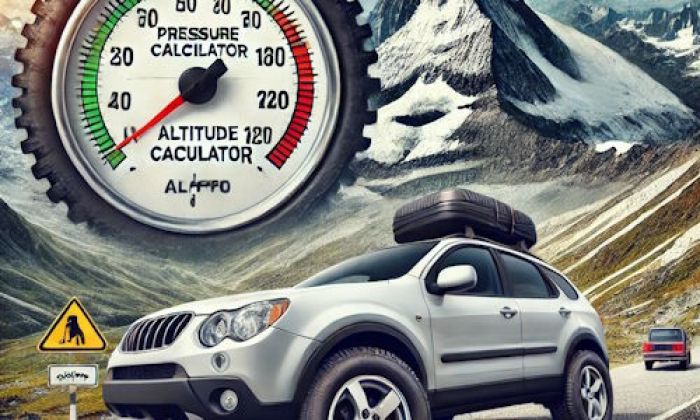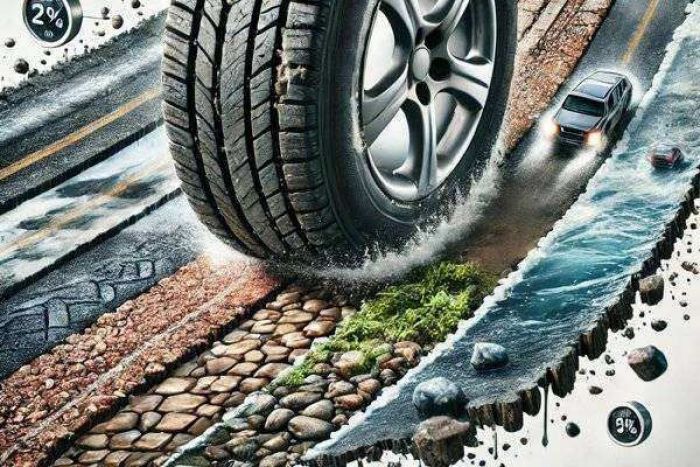If you thought selecting your dream car was the most challenging part of the process, it will interest you to learn that ordering isn't exactly a piece of cake either. There are a lot of i's to be dotted and t's to be crossed. Considering you do not buy a car every other day, it is of the utmost importance to do it right.
In case you have some questions about what happens once you select your car, you are in the right place. This article will walk you through the entire process and ensure you can handle the paperwork like a pro.

When Do You Pay for Your Car?
There are many ways to pay for your new car. It mostly depends on whether you are buying from a dealership or a factory. Of course, your method of payment also affects when you pay for the car. Paying cash and using direct or dealership financing will all affect how much you pay and when.
Let us begin with the basics:
1) Signing a Buyer's Order
The second you sign a buyer's order, you are legally obliged to pay for the vehicle. Without a buyer's order, your car is not yet yours, the dealer can sell it to anyone who snags it out from under you. A buyer's order includes very detailed information about the car you intend to purchase e.g. color, make, model, VIN, features, options, and warranties. It also contains all the details about the dealer, the buyer (you), and the terms of the proposed sale.
The terms of the sale will include a cost breakdown that will include the final purchasing price, applicable taxes, dealer fees, and any documentation cost. Buyers who are trading in their vehicle will also have the trade-in details captured in the buyer's order.
Though the buyer's order has the legal force of a binding contract, dealers have been known to breach this contract, especially where a deposit was not paid. Be sure to read the buyer's order very carefully. Do not sign it if your questions and concerns have not been settled to your satisfaction.
2) Paying a deposit to secure the buyer's order
As soon as you sign your buyer's order (we will discuss this later, most dealers will require you to pay a deposit to secure the purchase. Even where the dealer does not require a deposit, it is wise for you to offer one nonetheless. Firmly state that you prefer to put down a deposit (whether refundable or non-refundable) towards the cost of the contract.
Without paying a deposit, the dealer isn't obliged to sell you that particular vehicle at the agreed-upon price. A deposit is what changes your buyer's order from a promise to sell to a contractual obligation. It will stop the dealer from selling your car to the highest bidder once it arrives. A deposit makes the dealer honor your buyer's order.
3) Dealership Zero Financing
Some dealers (especially those dealing in used cars) offer unsuspecting buyers predatory zero-financing loans. Though the deal seems sweet because you can drive off the lot without paying a cent, your monthly payments will be much higher compared to a buyer who paid a deposit. Once again, avoid falling prey to dealers who are encouraging you not to pay a deposit for your car.
4) Completing Payment After Delivery of Vehicle and Documents
How you complete your car payments depends on whether you are paying cash or by loan. Buyers who are fully financed are likely to receive their vehicles faster than someone paying via cheque.
a) Trade-In
Where you are trading in a vehicle towards your purchase, its value will have to be determined. The car's value will then be deducted from the total cost of the contract. As mentioned above, ensure the value of the trade-in is captured in the buyer's order.
b) Cash
Once your car has arrived at the dealership, you will be notified of the delivery date. In the meantime, the mechanics will perform a full quality assurance check to ensure nothing broke during shipping. They will also clean the car and ensure everything is spic and span for when to drive it off.
Depending on your dealer's practice, you may be asked to complete the payment before taking delivery of the car. This is usually done to allow the payment a few banking days to clear before handing over the vehicle. If you are dealing with a trusted showroom or dealer, there is no need to be concerned about paying before delivery. Feel free to ask for an advance bill of the car, or a similar dealership-generated document to take home as you await delivery.
c) Loan
Buyers who pay via loan are not asked to pay the full amount before delivery. Instead, you are expected to make minimal monthly payments towards paying off the car. Failure to make your car payments could end up with the car being repossessed. When seeking to buy a car using a loan, it is not wisest to buy the most expensive car you have been approved for. Buy a vehicle whose monthly payments fit comfortably into your budget.
When paying for your car using a loan, every extra penny you pay adds up. It is essential to get the best deal on the table and ensure you are paying the least possible. Savvy buyers know better than to blindly accept dealership financing. They apply for loan pre-approval at least three months before they ever step into a dealership. Such buyers will only entertain dealership loans if they offer better terms than their direct financing options.
Preparing for Delivery
As you await your car's delivery, it is important to make your insurance payments and ensure your driving license does not have any pending legal issues. Most dealers offer the option of bringing the car to your preferred location, but they can also ring you up to pick it up if you had rather not pay the delivery fees. Delivery of the car should include, the car, its keys, and the sale agreement/bill of sale.
How to Ensure You Are Not Paying Too Much
Now that you know how and when to pay for your car, it is prudent to ask yourself if you are not overspending. You do not want to end up with buyer's remorse or worse, a financial burden. Consider the following before committing to your current car and financing option:
Does Your Budget Respect the 20/4/10 Principle?
Is your budget within the 20/4/10 principle? It states that you must put down twenty percent of the total purchase price, finance the vehicle for a maximum of four years, and have payments that aren't more than ten percent of your gross monthly income. This principle ensures you are not overwhelmed by the cumulative costs of owning the car e.g. taxes, insurance, fuel, repair and maintenance.
Shop for the Best Financing Option
Did you fix your credit before applying for loan preapproval? If not, you likely did not get the best offers. Nonetheless, it is important to have options to compare the dealership loan against. Before selecting your financing option, scrutinize all offers.
Check the APR (annual percentage rate), monthly payments, and length of loan to determine the cheapest option. Ensure you do not select a loan that has hidden charges e.g. origination fees or prepayment penalties. Do not feel pressured to select an option on the spot, if you had rather take some time or whip out your calculator before making a deal, anything is better than jumping feet first into a loan.
Negotiate Ruthlessly
Considering you have window shopped around, you likely know the best deals on the particular car. Quote a price that is lower than the asking price, but not too low (the dealer has to make a living) and remain firm in your price.
If that does not seem to help, mention some cheaper cars you could buy and remain with a pocketful of change. If in a pinch, try asking the dealer what they can throw in the deal in lieu of your discount. But the real trick to negotiating is being willing to walk away. Remember you can buy from several dealers but the dealer needs to sell to you. You have the power.
Be on the Lookout for Upselling
Do not be tricked into purchasing any extra items at the dealership. Your car is installed with everything you need. Upselling is where they get you. Before buying the extended warranty, consider its difference from the regular one, and ensure it really is worth buying.
Conclusion
Buying a car is not a walk in the park. It is a lengthy process that requires your A-game at every turn. Once you chose the perfect car, you must turn your attention to getting the cheapest financing available, unless you are paying cash, of course! Either way, take your time and ensure you make a decision you can happily stand by for the foreseeable future.
About the authors
The CarAraC research team is composed of seasoned auto mechanics and automotive industry professionals, including individuals with advanced degrees and certifications in their field. Our team members boast prestigious credentials, reflecting their extensive knowledge and skills. These qualifications include: IMI: Institute of the Motor Industry, ASE-Certified Master Automobile Technicians; Coventry University, Graduate of MA in Automotive Journalism; Politecnico di Torino, Italy, MS Automotive Engineering; Ss. Cyril and Methodius University in Skopje, Mechanical University in Skopje; TOC Automotive College; DHA Suffa University, Department of Mechanical Engineering






Add comment